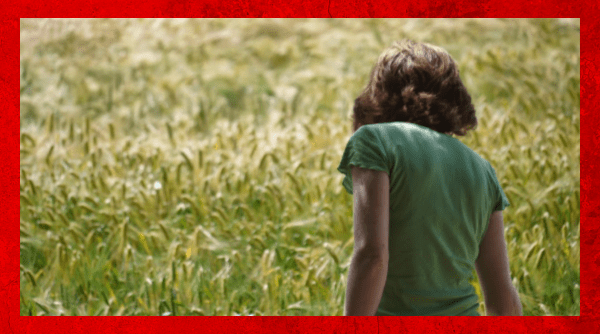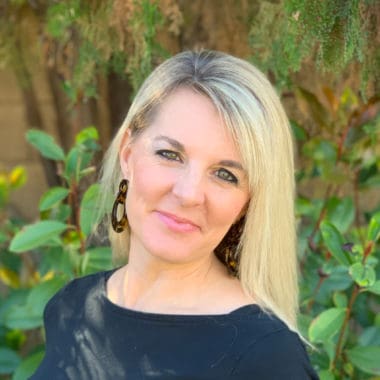This Present Paradise
A Series of Reflections on St. Elizabeth of the Trinity
(Start with part 1 here.)
I don’t remember how I first came upon it, that little scripture verse that snagged my heart. I wrote it down on an index card and hung it in the kitchen:
I will restore to you the years that the swarming locust has eaten. (Joel 2:25)
And I thought about it for a long time, the word “restoration” swelling in me, telling me things, inviting me to trust God who has a plan for wholeness and rebuilding and resurrection.
But how, I wondered, does God restore years? I knew well how God could multiply moments by opening up hours: the day mysteriously getting itself done even though morning mass ran long, or the unexpected free afternoon when my spirit was suffocated by too many commitments.
But years?
Does God have a time-machine or a rewind button? Well, he could if he wanted to. But what I’ve realized is that God does not restore years by fixing them or re-doing them.
God restores years by redeeming them.
This summer I discovered why God had given me that scripture verse, telling me to save it for later. I spent several afternoons with my daughter, re-reading one of my favorite childhood books: On the Banks of Plum Creek, by Laura Ingalls Wilder. I hadn’t opened a copy of that particular book in decades, and as we read it together I felt a flood of memories as thick as the prairie grass. I remembered reading the story of the grasshopper summers as a little girl, but now, as an adult, it made me ache in a new, awful way—seeing it from the point of view of Laura’s parents, who had staked their money and hopes and future on a bit of prairie land in Minnesota and built it all on credit and faith in their first wheat crop. And then—just when it was almost harvest time, they had to watch helplessly as a cloud of millions of giant brown grasshoppers descended out of nowhere and devoured every living thing in sight.
Including their wheat. The very stuff of their life and livelihood.
I imagined what it was to live and move and continue on day-after-long-day with the once-green ground covered in grasshoppers, the sound of their endless eating in your ears and crunching under your feet, the sound of your future being chewed away by an Old Testament plague come back to test every last ounce of your hope.
There was no rain, and the days went by hotter and hotter, uglier and uglier, and filled with the sound of grasshoppers until it seemed that no more could be borne.
“O Charles,” Ma said one morning, “seems to me I can’t bear one more day of this.”
Ma was sick. Her voice was white and thin, and she sat down tired as she spoke.
Pa did not answer. For days he had been going out and coming in with a still, tight face. He did not sing or whistle any more. It was worst of all when he did not answer Ma. He walked to the door and stood looking out.
And then, in the second year of this suffering, this original-sin, cursed-ground and toil and dust and sweat kind of suffering, the grasshoppers simply left. They marched west for days and finally flew off, with their backs to the eastern horizon—where we have always watched for the first sign of our saving.
Ma went into the house and threw herself down in a rocking-chair. “My Lord!” she said. “My Lord!” The words were praying, but they sounded like “Thank you!”
Were those lost years? They were eaten years, gnawed years, devoured years. But in the end, they were restored years. They were restored because the harvest was in maturing hearts and spiritual fruitfulness, years restored to wholeness by a surrendered kind of suffering which gave a family strength out of devastation and would inspire millions of readers for generations—including one particular middle-aged mom weeping into the pages on a summer afternoon. Laura brought me into those broken years and I came out and suddenly understood this with clarity:
I will restore to you the years.
And so it was with Elizabeth. There were those five years of waiting—unlike St. Thérèse, who would get her wish of entering at fifteen—when her mother’s hesitancy and possessiveness ate away at a young life, a life which would be far too short in the end. Years of fresh wheat, a week away from harvest, mowed down and left out by indecision.
How did God restore her lost years, her waiting years?
By redeeming every “not-yet” moment, washing it in His Blood and hanging it out on the line of her life for us to see, by inspiring us as we read of a loving, longing girl growing into a surrendered woman who was finding a pure kind of faith. We see her prayer simplify and be made more perfect in the wait, learning how to pray in the world exactly so that she could teach it to us later. We watch her crawl deeper into herself and find Jesus there—and make it her very mission to help us do the same, in the end. Yes, those years were very much restored. And the miracle is we are still gathering grain from her ‘devoured’ years, like Ruth gleaning behind the harvesters.
The other miracle is that God will restore our years, too. What gnawed-at, enemy-eaten past can we give over to God to redeem? What regrets and detours can we pull out of the crumpled place we’ve hidden them in and smooth them out and give them back to a God who wants nothing for us but wholeness?
God will write on them and sign His name on them and make them part of a story which is richer for them, once mercy is woven into all the broken threads, binding them up in a life which glorifies Him because of the disappointing and broken bits, not in spite of them.
Prayer to Redeem Lost Time by St. Teresa of Avila
O my God! Source of all mercy!
I acknowledge Your sovereign power.
While recalling the wasted years that are past,
I believe that You, Lord, can in an instant turn this loss to gain.
Miserable as I am, yet I firmly believe that You can do all things.
Please restore to me the time lost, giving me Your grace,
both now and in the future,
that I may appear before You in “wedding garments.”
Amen.
Read Part 19 here.
Image courtesy of Unsplash.




